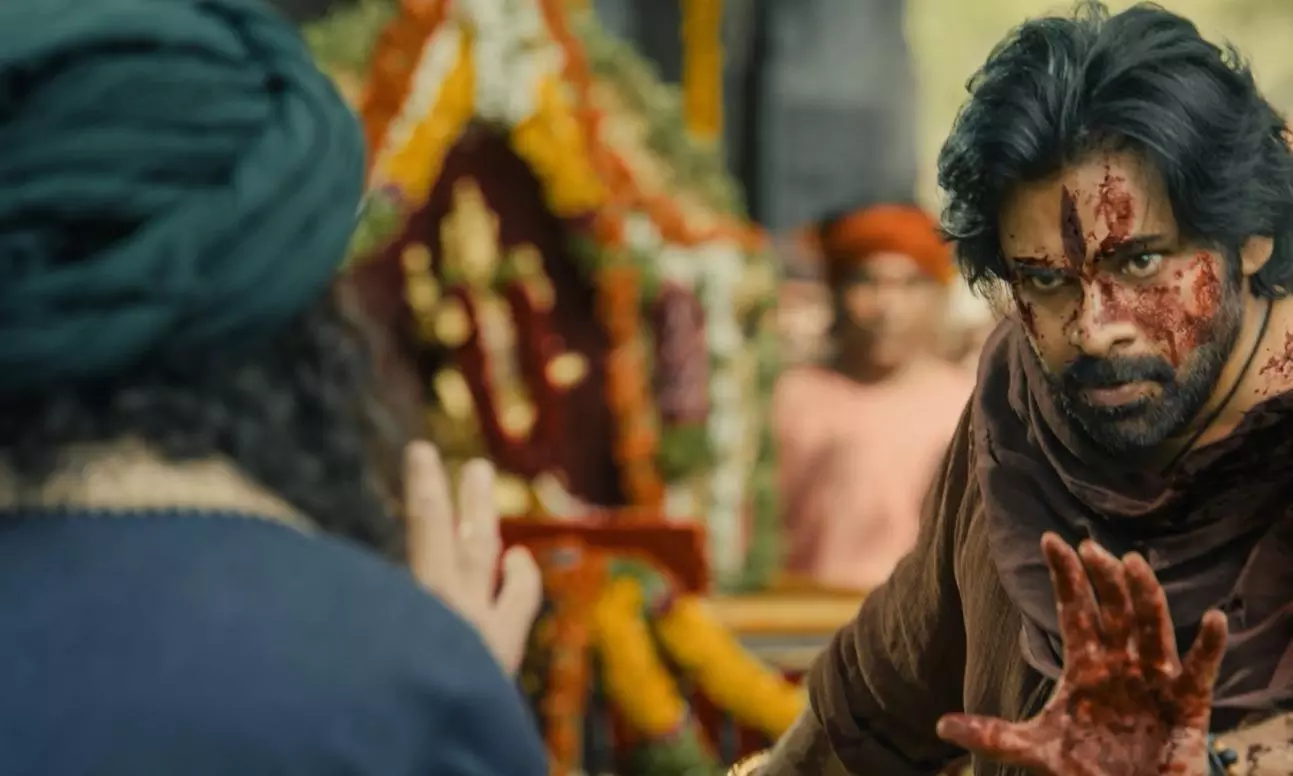Hari Hara Veera Mallu review: Pawan Kalyan's ambitious film falls flat
Telugu film's narrative sets up classic conflict between dharma and adharma, with some romance; setup is rich with potential, but execution is underwhelming


Set against the turbulent backdrop of 17th-century India, Hari Hara Veera Mallu aspires to be a grand historical epic—a tale of resistance, faith, and identity. It pits a fictional hero against the oppressive Mughal emperor Aurangzeb, blending myth, history, and fiction into a narrative that champions Sanatana Dharma.
Yet, while the premise is bold and timely, the film ultimately struggles to match its ambition with cohesive storytelling.
A hero rises
Pawan Kalyan stars as Hari Hara Veera Mallu, a Robin Hood-esque outlaw turned freedom fighter. In a time when Aurangzeb’s reign has brought religious persecution and heavy taxation, Veera Mallu emerges as a symbol of rebellion and protector of Hindu dharma.
Tasked by the Nawab of Golconda with stealing the prized Koh-i-Noor diamond from the Mughal throne, Veera Mallu embarks on a mission that is as personal as it is political.
Also read | Fahadh-Vadivelu thriller touches upon a heinous crime
The narrative sets up a classic conflict between dharma and adharma, good and evil, with romantic undertones through his love interest, Panchami (Nidhhi Agerwal). The setup is rich with potential, but the execution leaves much to be desired.
Flawed storytelling
The story has all the ingredients of a compelling period drama—historical stakes, a heroic arc, and a formidable villain. Yet, the screenplay falters in translating these elements into an emotionally engaging experience.
Bobby Deol delivers a competent performance, but his Aurangzeb lacks the menace and complexity that a historical antagonist of his stature demands. Compared to recent portrayals of the emperor, like Akshaye Khanna’s in Chhava, this one feels underwhelming.
Veera Mallu never appears to face real peril, stripping the narrative of tension. A mid-film twist arrives but fails to add depth or surprise. As a result, the plot feels more like a sequence of events rather than a gripping saga.
The second half is particularly problematic. The villain Aurangzeb, played by Bobby Deol, is underutilised. His confrontation with the protagonist comes too late, and the climax lacks the grandeur one expects from a film of this scale.
A bloated action episode near the end feels tacked on to set up a sequel, diluting the impact of what should have been a satisfying conclusion.
Characters that fade away
While Pawan Kalyan brings charisma and physical presence to the role, his character is written too invincible to be compelling. His journey lacks emotional stakes, and though he shines in select scenes, the overall arc feels flat.
Also read | Kuberaa review: Dhanush delivers towering performance in slow-paced drama on greed
Nidhhi Agerwal’s Panchami begins with promise but quickly fades into the background, her character reduced to a song appearance in the latter half.
Bobby Deol delivers a competent performance, but his Aurangzeb lacks the menace and complexity that a historical antagonist of his stature demands. Compared to recent portrayals of the emperor, like Akshaye Khanna’s in Chhava, this one feels underwhelming.
Veteran actor Kota Srinivasa Rao appears briefly in what is reportedly his final film, though the emotional weight of his appearance is diluted by a mismatched dubbing voice.
Technical shortcomings
Plagued by multiple directorial changes and an extended production timeline, the film bears the marks of inconsistency. Pawan Kalyan himself is said to have directed a portion of the film. The result is a disjointed tone and uneven pacing.
The visual effects, crucial for a film of this scope, fall short—possibly due to budget or production constraints.
The cinematography, credited to Gunasekhar and Manoj Paramahamsa, lacks cohesion, while the editing is choppy and often distracts from the narrative flow. MM Keeravani’s music is underwhelming, with no standout numbers to bolster the film’s emotional core.
Verdict
Hari Hara Veera Mallu sets out to be a rousing saga of resistance and faith, but despite its noble intentions and strong performances, it fails to deliver a fulfilling cinematic experience.
The film ends on an unsatisfying note, more focused on teasing a sequel than delivering a complete first chapter.
A missed opportunity, it is a victory in spirit for Sanatana Dharma, but a flawed one in storytelling.
(This review was originally published in The Federal Telangana.)

